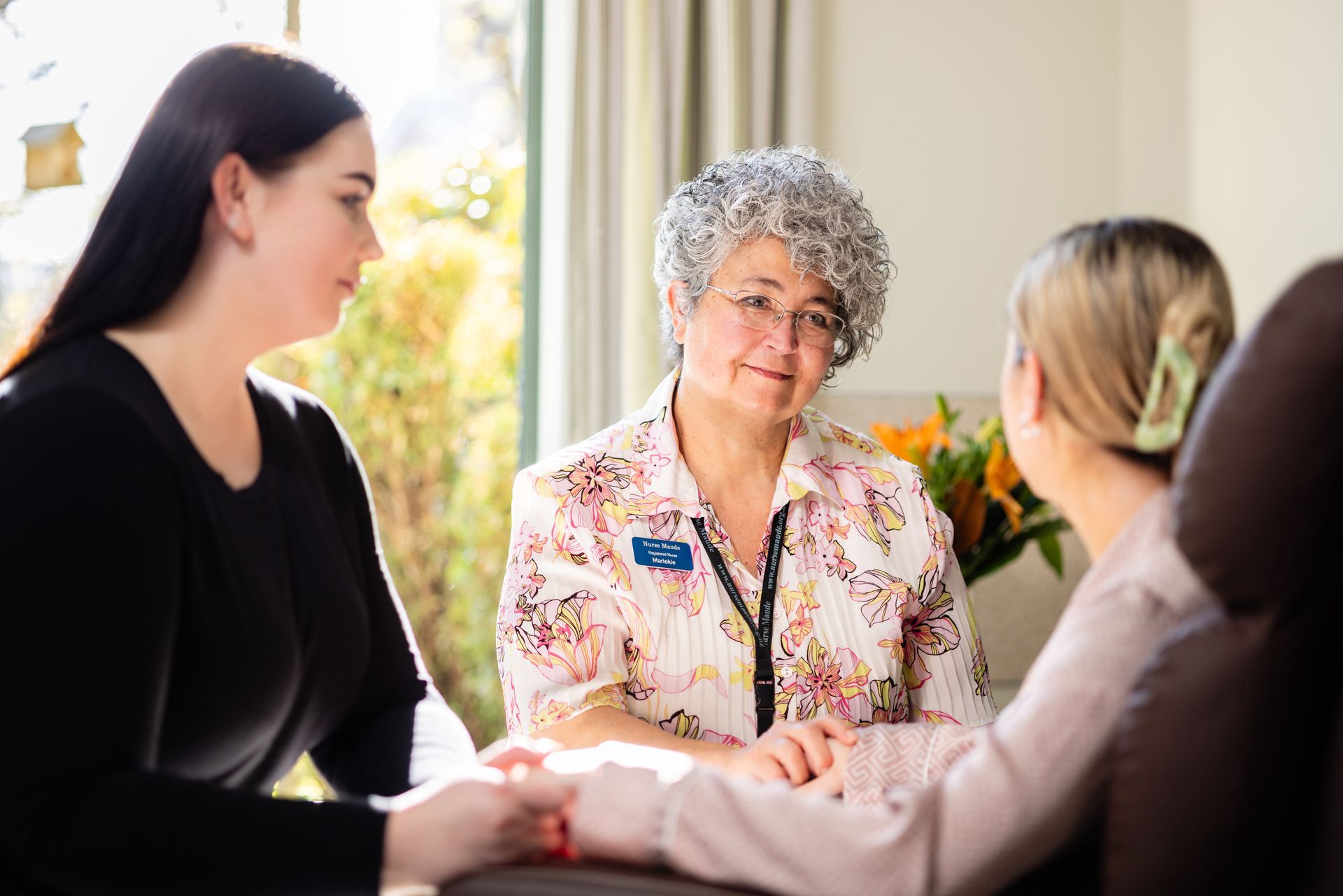Understanding the Dying Process
What happens when a person is dying?
This guide helps to explain the dying process, the symptoms that may occur and how to cope with them.
It is difficult to predict exactly what will happen in the last days of life. Some people deteriorate rapidly, slip into unconsciousness and die within hours, some are alert until the time of death, while others may be in and out of consciousness over a period of days. Dying is different for every person and every family/whānau and everyone will experience it in their own way. Caring for someone 24 hours a day may become impossible to sustain at home and sometimes an unplanned admission to hospital, hospice or residential care can become necessary. If you are a caregiver and this happens it is important to understand that you haven’t failed; you can still provide valuable care and support. Time at the end of life can be precious. If you can, make the most of opportunities to share special moments, express your feelings, say goodbye and perhaps discuss unresolved issues.
Children need open and honest information when someone they love is dying. It is important they feel included in family/whānau discussions and in caring for the person. Encourage them to talk about how they are feeling and ask questions.
A short video “What is it like to die” is available on the Hospice New Zealand website www.hospice.org.nz.
| Possible signs and symptoms | How you can help | |
|---|---|---|
| Increased drowsiness and more time spent sleeping due to major organs slowing down and getting ready to stop. | → | Communicate when the person seems most alert, and never assume that they cannot hear, so continue talking to them. |
| A decreased need for food and drink. This is a natural part of the dying process. Almost everyone will completely stop eating and drinking. | → | Do not offer food or fluid if a person is unable to swallow as this may cause distress. Instead, keep the mouth moist using swabs dipped in water or fruit juice. Apply Vaseline to lips. |
| Confusion about time, place and the identity of family/whānau and friends. | → | Talk calmly to reassure. Identify yourself by name. Use a night light and keep familiar objects in the room. |
| Restlessness and/or agitation. Possible reasons for this include discomfort, fear or the need to resolve unfinished business. | → | Contact your nurse or doctor for advice. Try to find out what is concerning the person and offer comfort and reassurance. Try a change of position, mouth care or toileting. |
| Arms and legs may feel cool and lips, fingers and toes may look blue due to blood circulation slowing down. | → | Avoid too many blankets as this can cause overheating and restlessness. |
| Loss of bowel or bladder control may occur when a person is very close to death. | → | Use incontinence pads and sheets to maintain comfort. A catheter to drain urine may be required. |
| Saliva and mucus may increase in the throat as the person becomes too weak to cough or swallow. | → | Sit the person up a little or turn them to one side. Mouth care may help. Talk to your doctor or nurse, as medication may also help. |
| Breathing patterns may become irregular with times of no breathing. This is a normal process as the respiratory system slows down. | → | This can often be a late sign. Contact family/whānau members who wish to be present at the time of death. |
Te Ara Whakapiri
Te Ara Whakapiri, published by the Ministry of Health, provides guidance for care at the end of life. It ensures that all health care services are focused on delivering the very best care for people who are dying and their family/whānau across all settings including home, residential care, hospitals and hospices.
How will you know when death has occurred?
- The person is unresponsive and not breathing.
- There is no visible pulse or heartbeat.
- There may be loss of bowel and/or bladder control
- Facial muscles will be relaxed, and the mouth and eyes will be slightly open.
- Stiffness of muscles occurs several hours after death.
What should you do when someone has died?
- There is no rush to do anything immediately. You may wish to spend time with the person.
- It is helpful to note the time of death.
- Inform your nurse. If it is during the night, you can wait until morning.
- A GP must visit to confirm a death at home and write a death certificate.
- Most people contact a funeral director. Family/whānau and friends may have a recommendation.
- As there may be many people to notify, consider delegating this task to family/whānau or friends.
24-hour contact
Please contact your GP or district nurse. Advice is also available 24 hours a day, seven days a week from the hospice.



